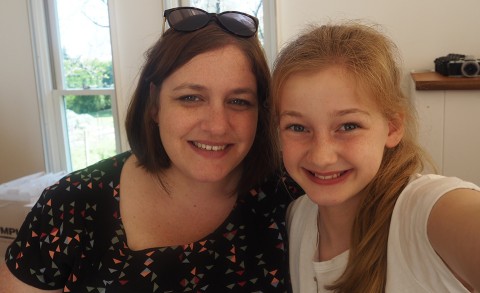
by Renee Bugg
It can be hard for parents to take a step back and allow their children to have their own voices. However, when it comes to advocacy, it’s especially important to find the right balance. Here Renee Bugg, parent to Poss who is on the Autistic Spectrum, talks about how they’re meeting the challenge.
As we head towards the teen years, Poss is like most of her peers; very aware of what she likes and dislikes. Often intensely so – even if she can’t always communicate it in quite the same way.
While some things will always remain the same (routines for the win), there is suddenly a whole raft of things that I can no longer assume I know about her. I can’t lay out her clothes for her, order off the menu on her behalf, or even predict what she might like for Christmas.
I may have some idea. I might even be right some of the time. But just as often, her views on what she needs are completely contradictory to my thoughts on the matter.
That’s not to say she always gets her own way. Sometimes I’m still going to insist on a jumper even if she’d prefer a singlet, simply because it’s 11 degrees outside. Vegetables are still on the menu, and despite her passionate requests, not everything on her long Christmas list will be under the tree.
That’s the prerogative of being a mum; there are times when we know best. And even if those moments are getting rarer as she gets older, I’ll keep trying to find that elusive balance of letting her make the decisions and still protecting her.
This all came to a head recently when we were discussing some issues at school. Poss was insistent she wanted me to handle it in a particular way; I disagreed. We fought. And for not the first time, I realised that the older she gets, the more of a say she will have her own advocacy.
It’s a debate that’s raged for as long as we’ve been part of the Autistic community and long before: who should be at that advocacy table? Is it parents? Is it therapists, professionals and doctors? Or people with Autism themselves?
I like to think it’s a combination of all three, those with Autism leading the way.
Just like I can’t always be right when it comes to the shorts versus pants debate, or which bra is going to feel better for Poss; despite my best intentions, there will be times when I won’t know the right way to help her.
And one of the benefits of her getting older, and more sure of her own voice, is her ability to tell me.
She won’t always be right either. Poss struggles with expressing and recognising emotion; she misses things that other kids pick up. Her responses can be out of proportion with the situation and sometimes she struggles to find the words.
Other kids will never have the verbal skills that Poss has, some will have a different level of independence, and others will view the world through a different sensory lens. They’re all valid and should all be represented in the mix of voices.
And that’s one of the benefits of having a parent at the table; to help interpret and fill the gaps our children’s story. To pick up the tale where our children leave off and help them tell it to the world.
Of course, parents aren’t infallible. We get it wrong sometimes. Other times we simply don’t have the experience or knowledge to offer anything practical to a situation. That’s where the role of professionals comes in; to help fill those gaps in understanding and bring their experience to the table.
In theory, the balance of advocacy should probably shift over time; groups stepping up, while others step back, as each situation calls for it, as each individual needs it.
As a parent it can be hard to let go and watch your child go out into a world that isn’t set up to support them, when all you want to do is protect them.
But I’m learning to trust all the work that Poss has done over the year: that she will have the tools to know what is right for her, to be able to stand up for herself, and know that we’ve always got her back.
Maybe I’m an optimist (although anyone who knows me will be laughing at that suggestion), but I firmly believe that there’s room at the table for each of us; working together so each voice can be heard and every person with Autism is supported.